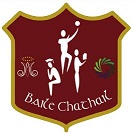New Junior Cycle Business
About the new Junior Cycle
The specification for Junior Cycle Business Studies focuses on improving students’ understanding of the business environment and on developing skills for life, work and further study through the three inter-connected strands:
- Personal finance
- Enterprise
- Our economy
To give further emphasis to the integrated nature of learning, the outcomes for each strand are grouped by reference to three elements:
- Managing my resources
- Exploring business
- Using skills for business
Classroom Based Assessment
Classroom-Based Assessments are the occasions when the teacher assesses the students in the specific assessments that are set out in the Junior Cycle specification. Classroom-Based Assessments are similar to the formative assessment that occurs every day in every class. However, in the case of the Classroom-Based Assessments, the teacher’s judgement is recorded for the purpose of subject learning and assessment review (SLAR meeting), and for the school’s reporting to parents and students. Students will be awarded descriptors for their CBA’s which are:
- Exceptional
- Above expectations
- In line with expectations
- Yet to meet expectations
Junior Cycle Business Studies will have two Classroom-Based Assessments. One in second year and one in third year.
Classroom Based Assessment 1:
This is a group project in which students are given three options from which to choose a Business in Action project:
- Enterprise in Action
- Economics in Action
- Finance in Action.
It is made up of four main areas of activity: conducting research, evaluating information, developing action plans and reporting findings. More information on class teams page.
Classroom Based Assessment 2:
This is an individual task which requires students to investigate and present on a business related topic. It comprises three areas of activity: investigating the topic, reflecting on learning (presentation) and communicating their findings. Additional information on class teams page.
Assessment Task:
Students complete a formal written Assessment Task to be submitted to the State Examinations Commission for marking along with the final examination for business studies. The Assessment Task is completed in year 3 and is based upon the students CBA 2. The Assessment Task is worth 10% of the students overall Junior Certificate Business Studies grade.
Final exam:
There will be one examination paper at a common level, set by the State Examinations Commission (SEC). The examination will be two hours in duration and will take place at the end of third year. The final examination is worth 90% of the students overall Junior Certificate Business Studies grade.
Important links:
New Junior Cycle Business Studies framework
New Junior Cycle Statements of Learning document
juniorcycle_statements_of_learningposter_dec11.pdf (ncca.ie)
Curriculum online – Course Overview
https://curriculumonline.ie/Junior-Cycle/Junior-Cycle-Subjects/Business-Studies/
Leaving Certificate Business – Subject Overview
This is a practical and vocationally-oriented course that introduces students to the world of Business in a straightforward and logical way. It aims to create an awareness of the importance of Business activity and to develop a positive and ethical attitude towards it.. The importance of people in Business is highlighted. The course sets out to illustrate the process of setting up a business and developing a new product or service. It emphasises the importance of good management and deals with skills and activities necessary for good management practice. It also deals with the impact of technology, foreign trade, global firms and competition and with business structures and the national economy
Content
Section A – People in Business
Unit 1
- Introduction to people in Business.
- Resolving conflict – Non-legislative methods.
- Resolving Conflict – Legislative methods.
- Resolving Industrial Relations Conflict.
Section B – Enterprise
Unit 2
- Enterprise
Unit 3
- Management Skills and Activities.
- ICT.
Unit 4
- Household and Business Finance, Insurance, Taxation.
- Human Resource Management.
- The Changing Role of Management.
- Monitoring a Business including ratio analysis.
Unit 5
- Identifying Business Opportunities.
- Marketing and Promotion.
- Starting up.
- Expansion.
Section C – Environment
Unit 6
- Categories of Industry.
- Business Organisations.
- Community Development.
- Business and the economy.
- Government and Business.
Unit 7
- Foreign Trade.
- The European Union.
- International Environment.
Assessment
Two levels – Ordinary level and Higher level.



